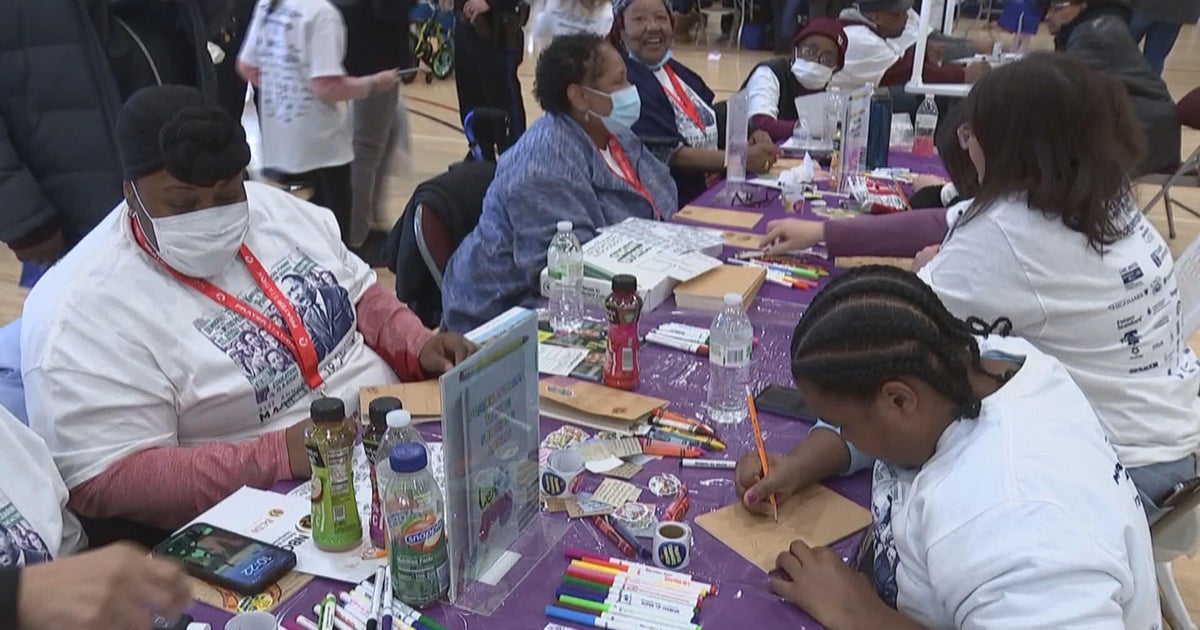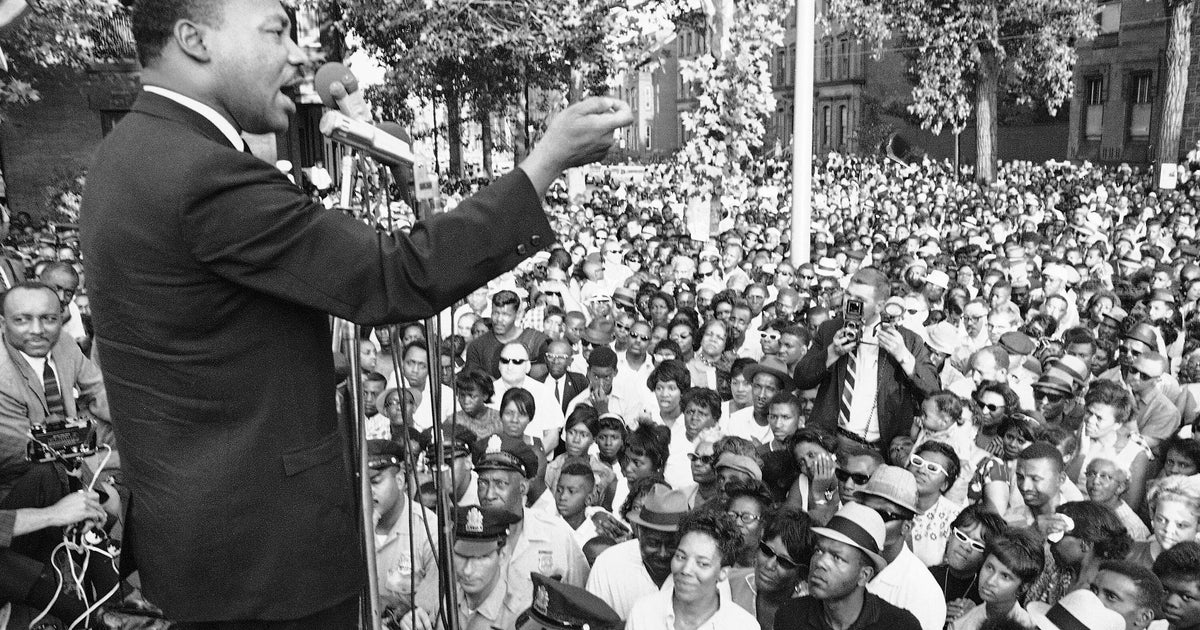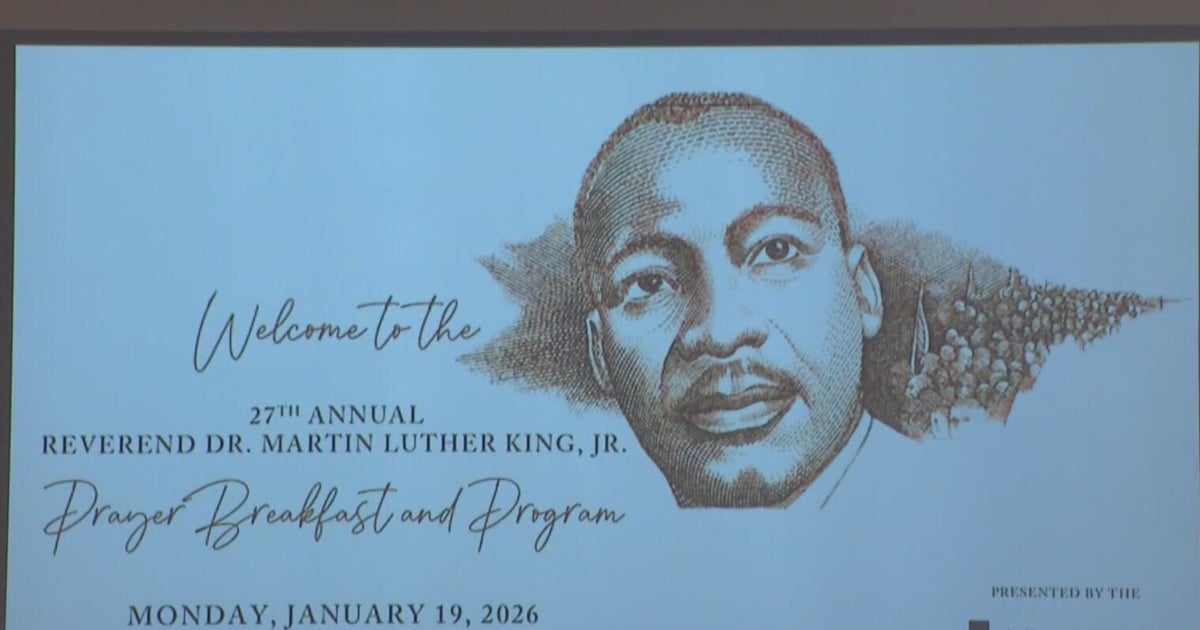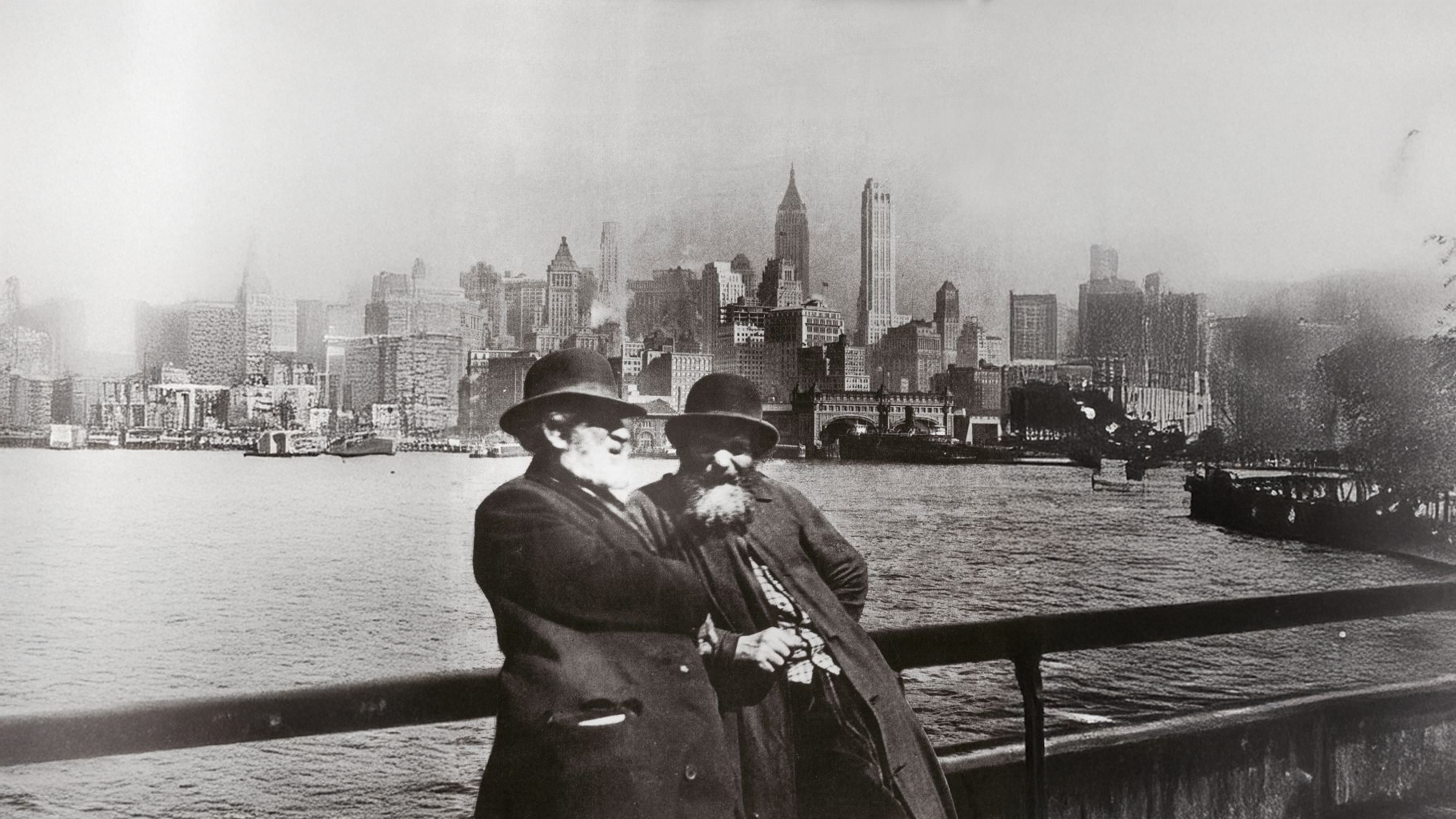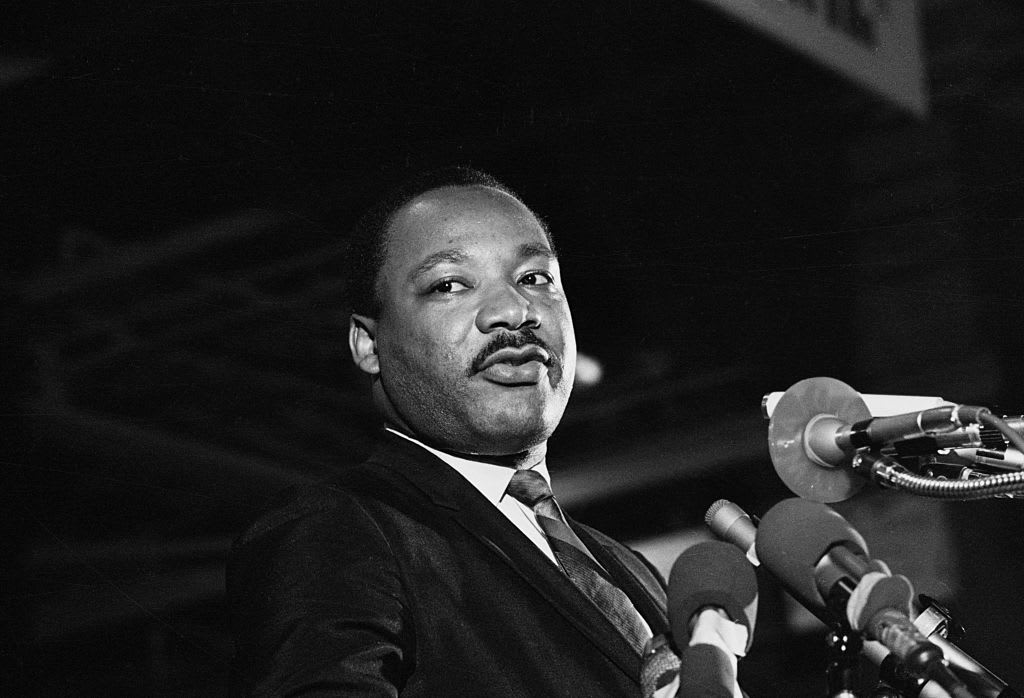Race and America as told through the years on 60 Minutes
In the 52 seasons 60 Minutes has been on the air, we have told many stories of race and racial injustice in America. As our broadcast continues to move forward covering the important issues stemming from the killing of George Floyd, we also want to take a moment to reflect.
- Minneapolis police chief says he's trying to mend mistrust
- NAACP LDF's Sherrilyn Ifill: Protesters have "lost faith in the justice system"
- How did America get here and how do we move forward?
In the coming weeks we will publish stories that aired on our broadcast with a focus on race and policing.
1968: MLK's Family at Christmas
Eight months after the assassination of Dr. Martin Luther King Jr., Mike Wallace interviewed the family of the murdered civil rights icon.
While sitting around a Christmas tree, flanked by King's widow and children, Wallace asked about the future of the movement King helped lead.
"I think that if we're looking for another Martin Luther King, we won't find him because he comes once in a century, maybe once in a thousand years, but there are many other persons now who will come forth, I believe, and assume leadership that they never assumed before, because they feel that there is this need," Coretta Scott King told 60 Minutes in 1968.
1993: The true story behind "Just Mercy"
In November 1992, Walter McMillian had been on death row for nearly six years. Convicted of robbing and murdering the clerk of a dry cleaning shop in Monroeville, Alabama, McMillian told Ed Bradley the state was preparing to execute the wrong man.
Months after the report appeared on 60 Minutes, lawyer Bryan Stevenson successfully argued in front of the Alabama Court of Criminal Appeals that McMillian was wrongfully convicted.
In 2019, the story was adapted into the Hollywood feature film "Just Mercy."
1999: Call Me Mister!
In 1999, Morley Safer interviewed Georgia native Preston King, a university professor who had been living in self-imposed exile for nearly 40 years.
In the late 1950s, an all-white draft board denied King a deferment to pursue a doctorate degree and referred to him by only his first name, dropping the previously used title of mister. As a result, King refused to report for military duty. He was subsequently convicted of draft dodging and sentenced to 18 months in prison.
"I don't mind serving time in the Army, but I don't wish to be subject to both the injury and the insult," King said of the boards' title omission. "What I was saying was, 'Here's a discriminatory pattern.' It's quite clearly established. The board has acted in an arbitrary manner towards me."
In 2000, President Bill Clinton granted King a pardon and allowed him to return home for the first time in 39 years.
2000: Who Killed Malcolm X?
Attallah Shabazz was 6-years-old when her father Malcom X was assassinated in New York City's Audubon Ballroom. Shabazz witnessed the murder.
Thirty-five years after the assassination, Mike Wallace interviewed Shabazz and Nation of Islam leader Louis Farrakhan. In his 2000 report, Wallace noted that Farrakhan had long been suspected by some of instigating the killing. It was a claim that Farrakhan has refuted.
Three members of the Nation of Islam were convicted of assassinating Malcom X on Feb. 21, 1965.
2003: Tulia, Texas
Located in northwest Texas, the city of Tulia is home to about 5,000 people and as Ed Bradley reported in 2003, one of the "worst miscarriages of justice in recent memory."
In 1998, the local sheriff hired Tom Coleman to work as an undercover agent to rout out drug dealers in Tulia.
At the conclusion of Coleman's 18-month investigation, 13% of Tulia's adult black population was arrested and charged with dealing cocaine. Nearly all 46 people charged were eventually convicted.
"The arrests had turned up no cocaine, no drug paraphernalia, no weapons, no money or any other signs of drug dealing," Bradley reported. "The convictions were based solely on the uncorroborated word of Tom Coleman, who had followed none of the standard procedures routinely used in undercover drug operations across the country."
Interviewed on 60 Minutes, Tom Coleman stood by the verdicts, but a state judge in 2003 said Coleman's testimony was "absolutely riddled with perjury," and described him as "the most devious, non-responsive law enforcement witness this court has witnessed in 25 years on the bench in Texas."
The judge set the Tulia defendants free.
Coleman was not prosecuted for perjury related to the Tulia case because the statute of limitations had expired.
2011: The Murder of Louis Allen
The murder of Louis Allen helped bring thousands of white college students to Mississippi in the Freedom Summer of 1964. When Steve Kroft reported on the case in 2011, the FBI was reinvestigating the killing as part of its Cold Case Initiative to solve potentially racially motivated murders.
The FBI's investigation focused on what it labeled "the most viable theory" that Allen was murdered by then Amite County Sheriff Daniel Jones.
Kroft interviewed Jones for the 60 Minutes story. He died in 2013.
In May 2015, the Department of Justice closed the case on Louis Allen. The report noted that all suspects were dead and that the federal government lacks jurisdiction to prosecute Allen's murder. The document also notes that prior to 1994, federal criminal civil rights violations were not capital offenses and had a five-year statute of limitations. The document cites the death of most key witnesses, including Jones, and the inability to use certain evidence in court as reasons why the case was closed.
1968: Cops
America was in a state of tumult in 1968. Martin Luther King Jr. and Robert F. Kennedy were both assassinated. Police clashed with protestors in cities including Chicago and Washington, D.C.
The Attorney General at the time was Ramsey Clark, and on the very first episode of 60 Minutes, Mike Wallace interviewed him about the state of policing in America.
1980: The Kid, The Cop and The Knife
In 1980, 60 Minutes correspondent Morley Safer reported from Milwaukee, Wisconsin on the 1958 killing of Daniel Bell, a 22-year-old black man, by a white police officer named Tom Grady.
At the time of Bell's death, a police investigation labeled it a justifiable homicide saying Grady fired the lethal bullet in self-defense.
Decades later, Grady's patrol partner, Louis Krause told Safer that Grady had planted a knife of Bell's dead body.
1993: "A Tale of Two Cities"
In 1993, 60 Minutes correspondent Steve Kroft reported on the racial disparity between the neighboring cities of Belleville and East St. Louis in Illinois.
At the time of the report, the predominately black East St. Louis had the highest per capita murder rate in the country.
Residents of the mostly white neighboring Belleville self-funded an iron gate to block a road connecting the two locales.
2004: The Murder Of Emmett Till
In 1955, 14-year-old Emmett Till was tortured and murdered in Mississippi for whistling at a white woman.
At Till's funeral, his mother placed her son in an open casket and allowed photographers to take pictures of his maimed corpse.
The photograph was published in Jet magazine and, as 60 Minutes correspondent Ed Bradley reported in 2004, ignited protests and civil disobediences throughout the south. "His death was a spark that ignited the civil rights movement in America…[a] lasting symbol of Southern racism in the 20th century," Bradley said.
2005: The Bridge to Gretna
When Hurricane Katrina ravaged New Orleans in 2005, thousands of people were trapped with no food, no water, no shelter, and were desperate to escape. A group of evacuees, mostly African American, tried to cross a bridge to neighboring Gretna, Louisiana, but were stopped and turned back by a largely white police force.
Four months after Katrina, Ed Bradley travelled to New Orleans to investigate the incident with points of view from both sides of the bridge.
2018: The Legacy of Lynching
In 2018, 60 Minutes contributor Oprah Winfrey reported from The National Memorial for Peace and Justice in Montgomery, Alabama.
Attorney Bryan Stevenson and the Equal Justice Initiative built the memorial to honor the more than 4,000 black people who were lynched during a 70-year period following the Civil War.
Stevenson told Oprah that lynching was used by white people to maintain control over black people after the Civil War. "It was intended to send a message that if you try to vote, if you try to advocate for your rights, if you insist on fair wages, if you do anything that complicates white supremacy and white dominance and political power, we will kill you."
Emmett Till photo courtesy of Johnson Publishing Company Archive. Courtesy Ford Foundation, J. Paul Getty Trust, John D. and Catherine T. MacArthur Foundation, Andrew W. Mellon Foundation and Smithsonian Institution. Mamie Till interview courtesy of Keith Beauchamp. Additional Emmett Till related photos and video courtesy of Fox Movietone News, the University of Memphis Libraries and Getty Images.
